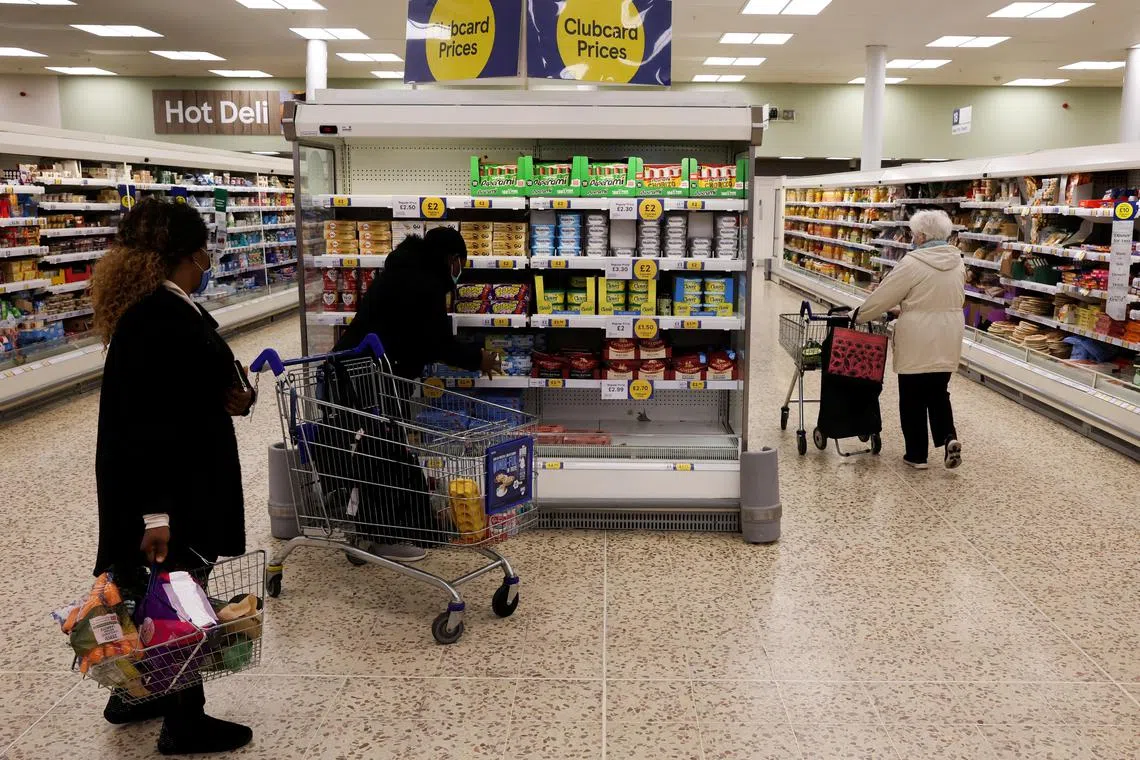Gen Z cuts back spending most in Britain’s cost-of-living crisis, data shows
Sign up now: Get ST's newsletters delivered to your inbox

Younger households with smaller financial cushions are cutting back the most in Britain's cost-of-living crisis.
PHOTO: REUTERS
LONDON – Britain’s young people are tightening their belts far more than older generations in a cost-of-living crisis that has left baby boomers tapping their savings to keep spending.
A generational divide has emerged as millennials and members of Generation Z reduce their spending to a crawl and cut back on goods and discretionary items, according to credit and debit card data from Barclays.
Older generations have built up a bigger cushion of savings to help maintain their living standards. Many were able to squirrel away more during the pandemic when shops and hospitality and entertainment venues were closed.
Overall spending is holding up even though prices across the economy are rising rapidly.
Inflation hit a 41-year high of 11.1 per cent in October,
But younger households with smaller financial cushions are cutting back the most.
At the start of 2023, spending on discretionary goods was flat or negative for those aged 18 to 29 compared with a year earlier. It was about a fifth higher for those aged over 64, and it was up 15 per cent for those aged 55 to 64.
Spending on goods fell slightly year on year for young adults in the first half of January, but it rose more than 12 per cent for those aged over 64 and almost 9 per cent for the 55 to 64 age group.
While services spending was the strongest category for Generation Z, with an increase of as much as 11 per cent, it rose by more than a third for those aged 55 to 64.
Mr Chris Stevens, director of investment sciences at Barclays, said the divergence between generations has become more pronounced recently and that it could partially be due to a catch-up effect after Covid-19.
“During the pandemic, older people reduced their spending by the most and since the pandemic, they have increased it the most,” said Mr Stevens.
“It could be a consequence of retirees accumulating a large chunk of savings during the pandemic and now spending it.”
Mr Stevens added that many older consumers who are less Internet-savvy are able to spend freely once again now that stores are open.
Card data suggests that spending has been resilient in Britain despite households being squeezed by double-digit inflation, higher taxes and a jump in mortgage rates.
Barclays said consumption in January was fuelled by higher spending on retail, entertainment and travel. BLOOMBERG


